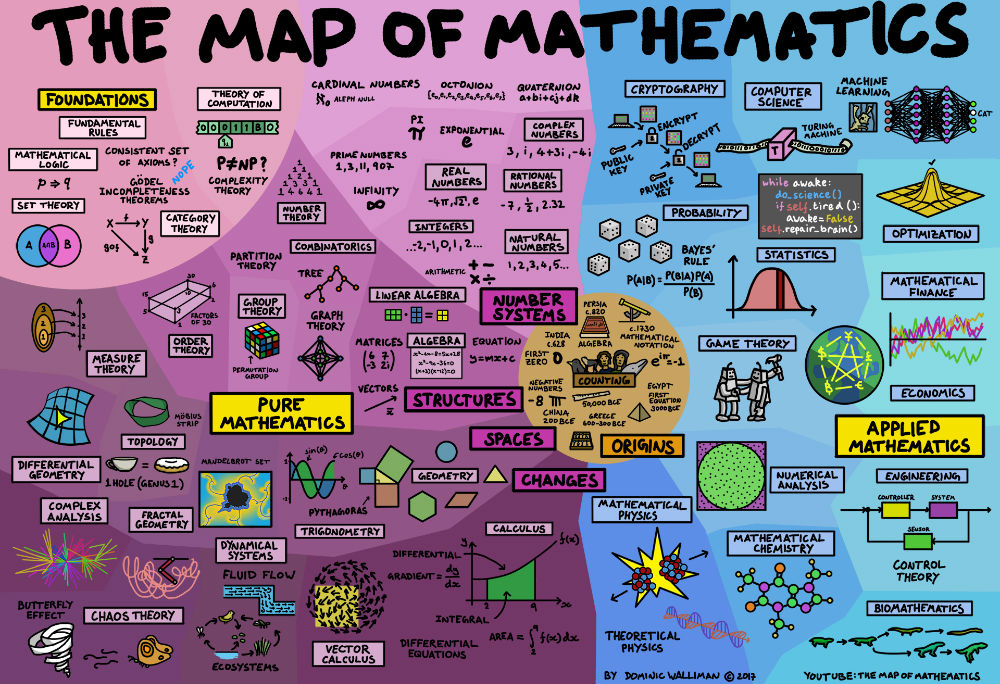 Introduction
Introduction
I'm not good at basic math. I struggle with many things which any decent mathematician aces early. For example, a few elements of calculus still remain over my head, although I have climbed the slopes of that mountain several times. Linear algebra is only just starting to make sense to me, although it turns out to be rather sensible, intuitive even. (Clue for the non-mathematical: As with many things in mathematics, ignore its name. It's more matrix-y than linear-ish. It should be called matrix algebra, and then you'd already know what it is. BetterExplained agrees, and then explains.)
Although I'm still not good at basic math, nevertheless over more than a decade, I've spent more than ten thousand hours studying advanced math which exists on the other side of basic. It turns out, this is possible. Basic math and advanced math are arranged more like two parallel universes, rather than one sequentially leading to the other.
The sequential development between these two worlds is learned in early stages which are famously poorly taught. If more people knew just a little about advanced math, more people would discover and fall in love with the truly beautiful side of math.
Back to what 10,000 hours means: Charting a decade of continually deeper dives into various mathy subjects, I currently have at least 6,000 browser bookmarks, 1,000 pages of typed and handwritten notes, and many gigabytes of PDFs, images, and related offline archives.
I often dream of extracting all the insightful gems from these personal math journals into properly-published peer-reviewed articles. This has long been the plan to do once I'm "good enough" at math to actually succeed. I may finally be close. I tried to start drafting several such articles a year ago, but instead fell into a pattern of more intense research adventure than ever before. I'm close to a million words in my notebooks over a period of a couple years. Well over half the text in those journals is copy-pasted from sites all over the Internet. My own journal-writing makes up maybe only a tenth of that million, where I explore incoming new ideas, comparing and contrasting with other ideas often mentioned previously somewhere else in the journal, or in the handwritten notes I used to write before I found a daily rhythm with research and writing using a keyboard and laptop. Every day, two or three hours; often more, rarely less. Seven days a week, all year round.
This recent abundance happened because I had finally crossed over a certain threshhold in math comprehension. Everything I was reading became more meaningful than before. The sea of context between previously-isolated ideas is finally beginning to cohere. Details that I would've skipped years ago are now meaningful. Hence, during much of the past year, I was discovering new ways to weave my previously-isolated ideas into proper place with the work of other mathematicians, after a decade of thinking I was creating new math altogether.
Just this morning I was up early discovering new insights into the p-adic numbers. With today's effort, I finally have enough keys into this obscure topic to begin planning a deep dive and come out knowing how p-adic numbers work. Not just knowing about them, like reading a Wikipedia article, but knowing them: inside and out, from the left and from the right. I've done this kind of dive on other topics, and now it's time for p-adics, which carry insightful clues toward proving the Riemann Hypothesis, as well as being key to perfectoid spaces, about which I know nothing. Perfectoid spaces are the newest insight mathematicians have developed in solving the decades-long Langlands Program. To the average person, what I just said means nothing, but to any mathematician, I've just given the street address of where I live on the "map of mathematics" you see at the beginning of this article.
It's a rather pretentious address. They might wonder why I'm hanging out in such a nice neighborhood without yet taking a single math class, and being a general failure at something so basic as calculus.
 This is from someone who long hated math
This is from someone who long hated math
Although I'm obsessed with it these days, I hated math growing up, avoided it at every opportunity, even developed a secret way to continue counting on my fingers -- which I still use -- long after I was supposed to be doing math in my head in junior high. I was easily confused by high school math and often read things like Robert Ludlum novels instead of paying attention in class.
I was happily in love with the written word, and devoted all my attention to things like Journalism and AP English. I don't remember taking any math in college; the closest I got was logic, which I enjoyed immensely without knowing logic has been intimately entangled with math since Kurt Gödel's famous Mathematical Incompleteness Theorems a century ago. So I have pretty much zero early mathematical background, which ends up being ironic because I fell in love with mathematics due to the number zero.
I was well into my thirties, long after college, before I discovered a book about the history of zero. This book was so fascinating, it's like it came alive in my hands. It drew me into reading biographies of mathematicians. Biographies. Stories. Lots of them. Math is loaded with stories.
Reading biographies slowly drew me into thinking about some of the things the math heroes talked about. This drew me into actually studying such mathematical concepts, which drew me into the foundational mysteries of Pure Mathematics, where I discovered a home in the neighborhood I described above. In a way, it's more like I'm a homeless guy in that neighborhood, but wandering the streets so often that people might think I live there.
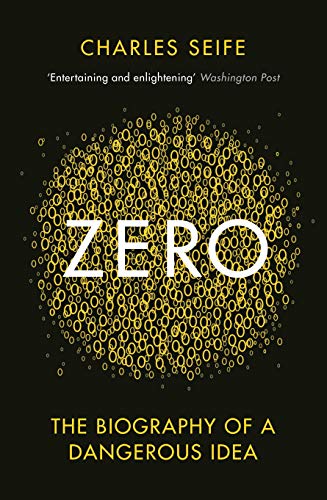 It turns out, that home is not far from philosophy and logic. On the "Map of Mathematics" seen at the top of this article, Foundations, along with Number Systems, appears in the upper left quadrant. This upper left area is where most people who study the Riemann Hypothesis live1. Not all. It's important to understand that Riemann researchers are found all over the map, but we'll get to why that is later.
It turns out, that home is not far from philosophy and logic. On the "Map of Mathematics" seen at the top of this article, Foundations, along with Number Systems, appears in the upper left quadrant. This upper left area is where most people who study the Riemann Hypothesis live1. Not all. It's important to understand that Riemann researchers are found all over the map, but we'll get to why that is later.
Unorthodoxy is a land populated by crackpots
As the journey has been entirely self-taught, I have some rather unorthodox ways of thinking about math. Such unorthodoxy is common to crackpots, the kind of amateurs well-known within Real Math™ for two polar-opposite reasons: 1. because the crackpots keep inventing new ways to do things that all real mathematicians know are impossible. 2. because far more crackpots keep thinking that they've discovered something amazing which is actually impossible. For example, in math, "solving the Riemann Hypothesis" is the new "squaring the circle." It's a topic which attracts crackpots in the same way inventing perpetual motion does for physics. Literally thousands of amateurs (and even a few geniuses) have offered failed proofs of the RH, as it is called by those who engage with it often.
Some people, when you tell them something is impossible, take it personally and spend all their energy trying to prove you wrong. When this happens in mathematics, you get people still claiming to trisect the angle long after it's been proven impossible. These days, such people are developing "theories of everything." Such theories are a dime a dozen ever since the gap arose between Quantum Mechanics and Einstein's Relativity theories a century ago. Everyone has one. This is wearisome to anyone serious about math. For every Good Will Hunting, there are dozens of crackpots who all imagine they are Will Hunting.
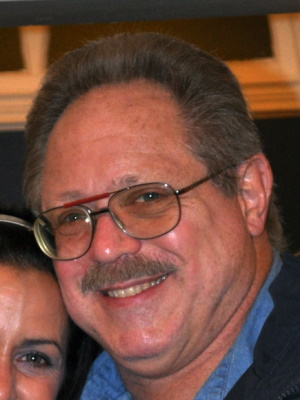 As an example, consider the crackpot barrier preventing "the smartest guy in the world" Christopher Langan from acceptance by the larger math community. I believe he is prevented by his own ego. If he could step back a little from himself and present his ideas in a way that others can more easily comprehend, instead of speaking a sophisticated, dense, cryptic jargon that shows off how smart he is, he would be more accepted for what he really is. The evidence for my judgmental take is simple: I'm comparing Einstein's easy readability in presenting his theories with Langan's. Langan is hard to understand. Einstein is readable for people like me.
As an example, consider the crackpot barrier preventing "the smartest guy in the world" Christopher Langan from acceptance by the larger math community. I believe he is prevented by his own ego. If he could step back a little from himself and present his ideas in a way that others can more easily comprehend, instead of speaking a sophisticated, dense, cryptic jargon that shows off how smart he is, he would be more accepted for what he really is. The evidence for my judgmental take is simple: I'm comparing Einstein's easy readability in presenting his theories with Langan's. Langan is hard to understand. Einstein is readable for people like me.
By the way, in case you wondered, this is not in itself a crackpot observation: Other really smart people agree that Langan is overall correct, but math and physics in general don't want to have anything to do with him. He does the thing that all crackpots do, which is embed their ego into their discovery. This is easily detected by how they write: normal math papers talk about the mathematical concepts first, their authors last. Crackpots do the opposite: they talk about themselves first.
Therefore what they say looks self-serving and incoherent on the surface. To his followers, he is a hero, but to the rest of the math world, Christopher Langan represents boastful chicanary, a P.T. Barnum circusman's approach to math which makes even the best of the crackpots easily ignored.
Realizing that I was doing a scaled-down version of the same thing took some years, because I thought I had largely solved that particular problem. I hadn't. I had solved the crackpot version of the problem, as I explain below. Truly facing my own ego so I could get to the other side of it and solve the real version of the problem was a whole new, more humbling, adventure.
Wearing out my welcome
Math is a reputation economy. I knew from the beginning (back in the early 00s) I started on the periphery, low on the reputation ladder, in amateur land, in crackpot territory. This is one reason why I purposely hid my growing fascination with math for years before I started sharing it with others. This was my attempt to solve the crackpot version -- say nothing at all until I know my way around. This is a well-structured idea, but I think I didn't realize how vast mathematics is. I should have waited longer: When I finally started posting my mathematical ideas on social media (I was that kind of geek), I happily got feedback.
As the conversations unfolded, I learned things from others -- all amateurs -- none at professional level. These friends were at first intrigued by my unorthodox ideas but soon became... hm... well... frustrated, because it became obvious I was turning math into a polemic platform -- a crackpot mistake if there ever was one. And there I was, a crackpot even though I had intended otherwise.
As crackpots do, I wore out my welcome. People eventually stopped responding to my threads, knowing that I was going to drag them into some weird debate oriented around my ego while throwing around math concepts that I didn't fully understand. When such friends were honest enough to tell me directly what problems I had, logically or mathematically, rather than listen to them, I got defensive, as if I'd been insulted.
I inherited such tactics from my father -- who is a crackpot in a different arena -- without awareness that they were a problem. In a very math-geeky kind of way, other people could see this, but I couldn't. Such is the way with ego problems. Such friends soon stopped trying.
Through a painfully slow process that took years, I eventually got the message: I'm offending the real math geeks more than engaging them. One of my friends knew me well enough to identify a specific logical fallacy I was using. This startled me. This set me on a journey of discovering other logical fallacies and rhetorical flaws I inherited from my father. He famously taught his kids to think outside the box, but gave us no skills whatsoever in how to think outside the box with respect to others. It's the same problem Chris Langan faces, but with a different flavor. The self-discovery process was humbling enough that I was already looking for ways to retreat and re-invent my approach.
Then something terrible happened, and out of it grew something wonderful.
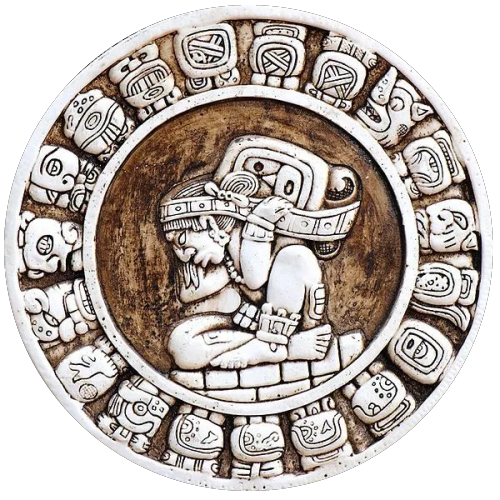 My brother died. Not the math- and physics- genius brother we all looked up to, but the brother who was a Mayan-calendar
My brother died. Not the math- and physics- genius brother we all looked up to, but the brother who was a Mayan-calendar genius, err, crackpot.
There were two of us crackpots: he was obsessed with earthquakes and Mayan calenders, and I was obsessed with ternary logic and mathematics. Both of us were easily-ranting, sometimes logically incoherent, social outcasts who went on and on about obscure things til nobody cared to hear more. Just like our father, in case you were wondering, but that's another story altogether.
When my brother died, I simultaneously lost my zeal for talking about math. What happened was a timing coincidence. Many months before, I already understood I had worn out social contacts with my mathy speculations. I knew I was addicted to the dopamine hit which no longer worked, of people "liking" and responding to my crackpot math posts. Honestly, few cared any more. I knew I needed to quit social media posting, but early attempts were failing. Like my brother, I should have stopped long before. But finally, I did; the day before he died I coincidentally decided again to stop posting online and start focusing on things in life which had suffered because of my addiction. It wasn't the first time I made that decision, but it was the last. My brother was shot the next day, and through the grief of losing him, something positive came into being: his death gave me that last bit of extra motive needed to withdraw from social media altogether. It's been years now, and I haven't returned. My last post is one where I talk about his sudden death.
I could go into more detail here, but those of you who are or have been addicted to social media know the struggle. The point I'm making here is that quitting was a process already underway, and death somehow provided the "kick" to make it persistent.
The tea of math brews best in silence
It wasn't long before something very unexpected happened. When I stopped talking about math and ternary logic every day, I unwittingly ended a certain feedback loop that had kept me stuck in an endless cycle of crackpottery for years. To be clear:
When I stopped talking about math, it began to become real within me.
Until then, my ego was attached to any mathematical discovery I made. There was a self-sustaining loop, the same endless circle that plagues all crackpots. It was exactly like the feedback loop that microphones get into with loudspeakers -- that annoying whine we've all heard when people are testing sound systems. The quickest way to break that loop is to put your hand over the microphone, which brings blessed silence. Without realizing it, this is what I did. One half of the loop stopped, and the other half faded quickly.
All I had to do was stop talking, and that ego-driven feedback loop began to shrivel up and die. Once that happened, I lost much of my motive in telling people about every little thing I discovered. I no longer have the desire to post online like I used to. Yes, I do write, for example on this weblog, but few read it, and it's mostly long-form stuff like this present article, which required a month to write. This is more like the journalism writing that I used to do. I work harder on this kind of writing than the half-cocked impetuous posts I used to put on social media, and they are not so frequent. Weeks or months go by between posts. It's a very different feedback loop than the microcycle which was destroying my life.
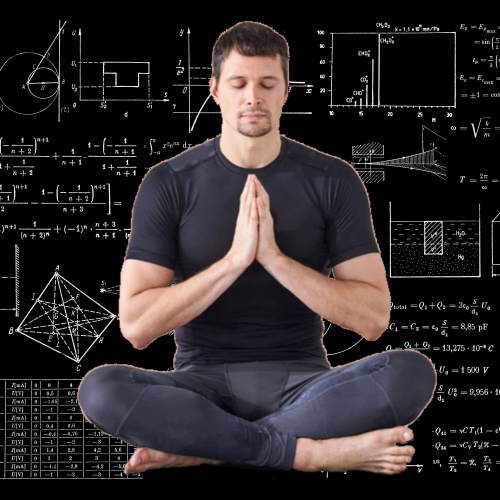 The unspeakable fertility of silence
The unspeakable fertility of silence
I discovered something powerful about silence. Surely others have discovered it too, but for me it was life-changing. Having thought about it a lot, I believe it's the original idea behind "sabbatical" although professors who take sabbaticals do not typically use it this way -- they use the time to research and write when they should use the time to retreat and do other stuff entirely.
The ones who do it properly know, silence is not just golden: silence is golden and fertile. It is like a fallow field in which ideas begin to restructure themselves according to the 3D deep hidden truth, rather than according to our ego's 2D shallow shadow of the truth.
It helped that by the time I quit I had long been practicing daily meditation. This made the silence more powerful, because I had already kindled certain fires within my inward nature, fires which re-prioritize everything, given half a chance.
It also helped that I was studying math, which cognitive science shows to embody the greatest "invariance" of all fields of study. In other words, by studying math deeply over years, I was unknowingly building a region of long-term stability within my psyche -- which began to flourish as soon as I gave it the room to grow.
With these two variables involved you might be starting to see I was in a "perfect storm" kind of moment when I discovered fertile gold within silence. For example, I had quit other things before and did not experience what happened in this case.
The point I'm making here is important, so let me clarify: There were several unique variables. For example, if I quit temporarily, it wouldn't have worked the same. If my brother's death hadn't put an edge of seriousness to everything, it wouldn't have worked the same. If I did not already have years of meditation practice, or had studied something less cognitively invariant like math, silence would not have the effect of re-organizing my thinking processes so deeply. If I had stopped studying math altogether, something different would have happened. Instead, I simply stopped talking about it, which created a communication pressure within me, which turned everything inward. All this is to say, what worked for me might not work for others going into silence with different variables involved.
That internal pressure grew, and I was soon journaling math more than ever before. Once I internalized the discovery feedback loop, coherence and order began to slowly appear in my inner mathematical universe. Only then could I see the problem Chris Langan faces for what it is, not for how it appeared to me.
Circumstances had conquered an important part of it within myself, "the lion" of the journey.
The lion, the leopard, and the she-wolf
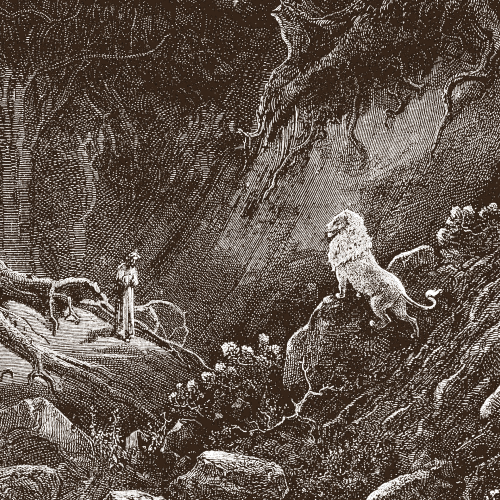 Now we're getting to the real substance of this article. The lion of the journey is a reference to Dante Alighieri's great work, the Divine Comedy. Early in the narrative, the author encounters, one after the other, a lion, a leopard, and a she-wolf. These three savage beasts are Biblical. They're mentioned by Isaiah and Jeremiah, and there is a lot of ancient meaning behind them. On the first level of meaning, Dante shows they represent struggles which any "hero" goes through internally before he can truly embark on his heroic journey.
Now we're getting to the real substance of this article. The lion of the journey is a reference to Dante Alighieri's great work, the Divine Comedy. Early in the narrative, the author encounters, one after the other, a lion, a leopard, and a she-wolf. These three savage beasts are Biblical. They're mentioned by Isaiah and Jeremiah, and there is a lot of ancient meaning behind them. On the first level of meaning, Dante shows they represent struggles which any "hero" goes through internally before he can truly embark on his heroic journey.
While scholars debate the meanings (some say the lion represents violence, others say pride, etc.), I noticed that these debaters do not use the meaning in their own lives. So, instead of going to them for answers, I've learned to look for what such potent symbols mean in my own life. As far as I can tell, the lion represents the boastful, self-assured, proud, aspect of the ego. The part that can't stop talking.
When I stopped talking about math, stopped boasting, stopped burying the lede with my own pride, the lion within me shriveled and died.
Consequently, there is a marked difference in how I approach math these days. I am far more careful than I was -- not dashing forward like a mighty lion who will win any encounter (yet losing often, because the lion is an ego-deception), but stepping more carefully. With the same fervor of a former addict not wanting to be addicted again, I genuinely do not want to make the mistake I was making before. I honestly am afraid that if I publish carelessly, relying on writing or rhetoric skills instead of math skills, or making other such mistakes, I will end up where Chris Langan is -- except I'm not as smart as him, so it will be an even more lonely and futile promontory.
The lion can plague well-known mathematicians -- René Descartes, one of the greatest mathematicians, had an enormous ego and was abusively unkind to Pierre Fermat, another brilliant mathematician who was relatively humble. If they had worked together, they would likely have discovered calculus. But that had to wait for another big ego: Isaac Newton (also abusively unkind to Gottfried Wilhelm Leibniz who simultaneously discovered calculus). There are others like this throughout history; their stories make compelling biographies. For example, the story of how John Nash finally conquered the lion was so interesting it became a best-seller and then a major motion picture, leading to him finally win a Nobel Prize. At the end of the movie, his character displays genuine humility, kindled by a fear that the lion might reappear.
How to be simultaneously right and wrong
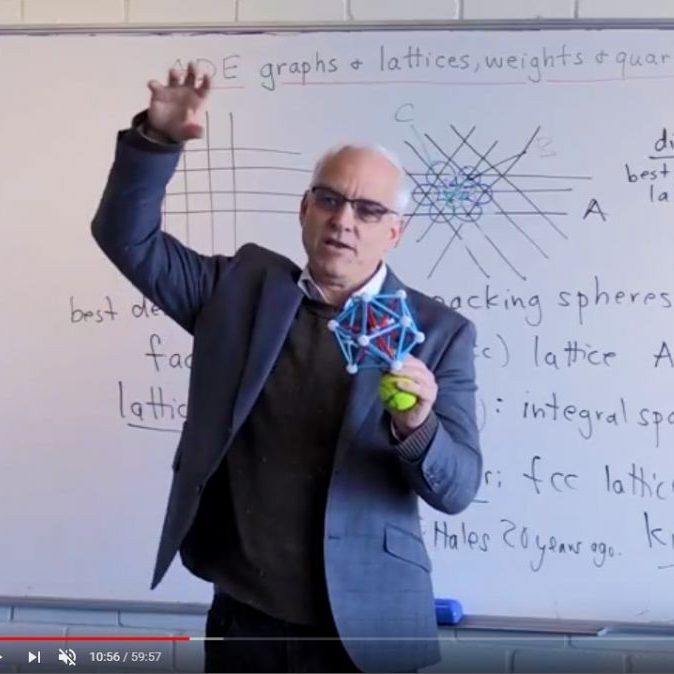 There is a still-living mathematician who has not conquered the lion yet; and because of it, he is regarded as a crackpot by many of his peers. I believe his ideas are good underneath the surface noise. He has a lot of legitimate credibility as a mathematician. For example, mathematicians using his version of trigonometry developed a way of doing 3D rotations within a computer that is faster than all previous methods. This is a significant discovery, since all animation and all modern video games require such rotations, and GPUs are designed specifically to make this kind of math faster. This is honestly very impressive, and it shows his innovations are solid.
There is a still-living mathematician who has not conquered the lion yet; and because of it, he is regarded as a crackpot by many of his peers. I believe his ideas are good underneath the surface noise. He has a lot of legitimate credibility as a mathematician. For example, mathematicians using his version of trigonometry developed a way of doing 3D rotations within a computer that is faster than all previous methods. This is a significant discovery, since all animation and all modern video games require such rotations, and GPUs are designed specifically to make this kind of math faster. This is honestly very impressive, and it shows his innovations are solid.
In addition, he's a former math professor who has hundreds of videos covering a wide variety of mathematics, from basic to advanced. All of these videos are sound and well-received, a great teaching tool for many around the world. So he's legit, and has a following of more than a hundred thousand people who relate to this side of him.
But he has a hobby, so to say, where his crackpot side shows up. He knows this, and even calls himself a heretic on his Twitter feed. In a number of long forum discussions about this side of him, there is a general consensus that he is a crackpot. However, he's not a crackpot in the substance of what he's saying. He just presents it wrong -- too full of lion energy. It looks like he wants to bring down other mathematicians equally as much as he wants to bring himself up. Thus he embeds a polemic-against-the-system into his presentation. This approach causes peers to recoil from his entire proposal. He employs the problem theoretical physicist Sean Carroll points out: "...nobody ever chooses to describe themselves as a crackpot. If you ask them, they’ll always explain that they are on the side of Galileo; and if you don’t agree, you’re no better than the Inquisition."
Nevertheless, some of his ideas overlap my own (we're both finitists2), so I've looked carefully at what he has to say, and I've been able to extract the baby out of the bathwater. It is plain to see that others give up much too quickly. I've even worked out how he could change his presentation style and begin to win over people who have previously given up on him. But alas, I fear contacting him because he might put all that lion energy into conversation with me. Then he would be entrenched and there would be no progress. Lions have a hard time listening. They prefer others listen.
The wolf problem is next
 If you understand how the lion was conquered by a form of starvation, you'll see how the she-wolf cannot be conquered so easily.
If you understand how the lion was conquered by a form of starvation, you'll see how the she-wolf cannot be conquered so easily.
When Dante meets her, the wolf is already starving, ravenously hungry. She is more terrifying than the other two beasts. She is able to survive within starvation. Going silent for a while conquers the lion, but not the wolf. Go silent with her, and she'll just outwait you.
To me, the wolf is something I am just learning about, and have yet to face directly. Maybe I will succeed, maybe I will not. Having overcome the lion, knowing that struggle took years, it seems logical there is another series of battles coming. I think the she-wolf represents greed -- maybe even avarice -- and envy. These are "always hungry" attributes. Always wanting what you do not have.
In the world of mathematics, this "want" has to do with the fact that solving the Riemann Hypothesis is now worth a million dollars. At the turn of the millennium, a millionaire who loved mathematics set up a fund to reward people who solved certain difficult math problems. This made a lot of crackpots -- and mathematicians -- "want" to solve the Riemann Hypothesis for reasons that have nothing to do with mathematics. It awakened a lot of wolves, in a way.
I'll be honest here. Although I was initially drawn in while reading biographies of Bernhard Riemann -- impressed by his humility3 -- I was soon drawn deeper into math by wolf energy -- maybe I could win that million. I'm being honest about something a lot of people won't be honest about, because I think such honesty is one of the weapons which conquers the secret motive of want. I suspect the wolf preys on people who hide their base motives from even themselves, and are therefore doing nothing to curb them.
Because we all do that to some degree, I recognize the she-wolf is more subtle than that alone, though.
True genius and the she-wolf
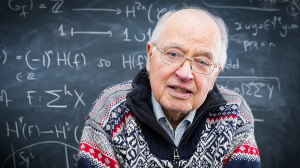 Consider this case for an example: Sir Michael Atiyah, one of the greatest mathematicians of the last century, one of the very few who won both a Fields Medal and an Abel Prize, spent the last few years of his life working on Riemann's Hypothesis. If few could have solved it, he was in that class, and had worked on closely-related material with great success.
Consider this case for an example: Sir Michael Atiyah, one of the greatest mathematicians of the last century, one of the very few who won both a Fields Medal and an Abel Prize, spent the last few years of his life working on Riemann's Hypothesis. If few could have solved it, he was in that class, and had worked on closely-related material with great success.
And then he battled the wolf in the last few months of his life -- and lost. He was not battling the lion; this was the wolf. Just before he died, he famously came out and said he had solved the Riemann Hypothesis. Mathematicians around the world immediately tuned in -- this was big. He published his solution. Even with his reputation, the response was quick and unanimous -- no, he had not solved RH. But he was very well respected, so the response was also... respectful. Nobody called him a crackpot or a crank -- he clearly wasn't. Instead, something kind of beautiful happened:
Mathematicians around the world watched this story unfold over several days. There was an earnest desire for him to retain his well-earned credibility and respect, but also, normal media was increasingly picking up the story, so there was an earnest desire to ensure mathematics itself retained credibility and respect. Along the razor's edge of these two forces, the story developed. In the end, mathematicians came to a nearly-unspoken consensus: that he was very old, still grieving from the recent death of his wife, and simply published his discovery prematurely. Premature publication is a forgivable sin. It happens a lot, although rarely at this level. This is one reason why we have a robust preprint system, where people can pre-publish their ideas, solicit feedback, and refine their work before it gets published "for real."
With that unspoken consensus concluding the story, the media withdrew, and as a result few people outside mathematics know anything about Atiyah's last stand. I personally think there is merit to some of his ideas on this subject, but it's unfashionable to say that.
The Riemann solution and cryptography
Although the Atiyah story faded almost as quickly as it appeared, if he had truly solved the Hypothesis, nearly everyone on earth would have heard about him by now. Why?
A century ago, a great mathematician once said if he slept for 500 years, the first thing he'd want to know when he awakened was whether the RH was solved yet. Mathematicians all know there are thousands of existing math papers which will be immediately proven along with it. But even more consequential these days, because the solution will reveal a hidden pattern within prime numbers, there is a potential that most cryptography in the world will be easily broken by the methods used to prove the Hypothesis. Thus, the million dollar award is only the tip of the iceberg; because of this double-whammy, it's easily the most-awaited discovery since Isaac Newton and Gottfried Wilhelm Leibniz invented calculus.
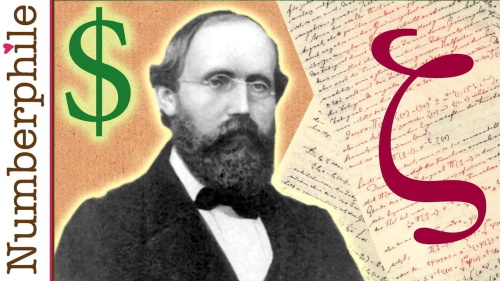 An algorithm that breaks encryption is a major plot point in a successful movie a few years ago (Sneakers, starring Robert Redford, with a cult following among mathematician-types). I confess that I'm one of the thousands of people -- amateurs and professionals alike -- all around the world who regularly think about ways to solve this 150-year-old problem.
An algorithm that breaks encryption is a major plot point in a successful movie a few years ago (Sneakers, starring Robert Redford, with a cult following among mathematician-types). I confess that I'm one of the thousands of people -- amateurs and professionals alike -- all around the world who regularly think about ways to solve this 150-year-old problem.
If you're following what I'm saying here, all of this paints a picture of a starving she-wolf.
The answer to the wolf problem is more strategic than tactical
There are many who say the Hypothesis will not be solved in our lifetime. Others say the solution is imminent because extensive triangulation of the problem from many directions has revealed so many clues that it is now only a matter of time. The sites collating these clues are staggering to read -- how is it not solved yet, with so much data on it? But even people who think it is imminent agree -- the answer will require a radically innovative approach. Everything else has been tried by now.
In the spirit of new ideas, and based upon my paradigm shift with the lion, I propose the following: Conquering the she-wolf may lead to the ability to see something radically new in the Riemann problem. I'll return to that thought in a moment, but let me finish describing the wolf problem.
The answer to the wolf problem does not need a radically innovative approach. In a way, it's a "solved problem." Although the answer exists within religion, not science, there are well-established techniques like meditation, self-awareness, atonement, and asceticism available to those seeking to overcome greed and materialistic desires. Dante was not alone: many poets and prophets and heros through the ages have revealed solid insights for how to conquer the she-wolf. In all religions. The answer is out there.
This particular wolf stalks innocent young mathematicians who naively do not think about what happens after they solve the math problem. They are her prey.
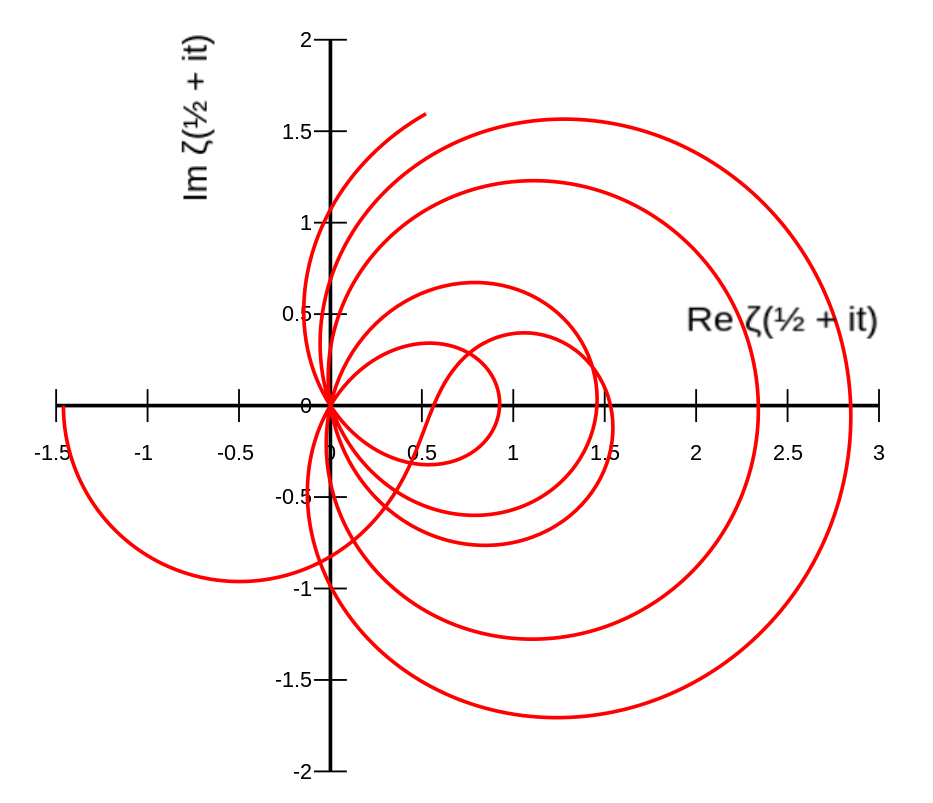 Now that I can see it, I'm working on the wolf problem, a little here, a little there. I may say that "I conquered the lion" as a way of speaking, but I well know it was really a perfect storm of miserable circumstances which conquered the lion. The wolf is different. She requires strategy, and, I think honesty.
Now that I can see it, I'm working on the wolf problem, a little here, a little there. I may say that "I conquered the lion" as a way of speaking, but I well know it was really a perfect storm of miserable circumstances which conquered the lion. The wolf is different. She requires strategy, and, I think honesty.
The Riemann solution and humility
Now for a closer look at my proposed "innovative" approach, before we talk about the leopard. As I noted earlier3, Riemann himself was remarkably humble: What if the Riemann solution is only visible to people who are humble? If so, the wolf problem can be posed as the following question: "How can I let go of a capitalistic desire for $1 million, and instead allow myself to be drawn into the solution because it's a beautiful math problem?"
Indeed, it is beautiful; the curious math spiral (see image) that reveals the path of the Zeta Zeros is elegant. A 3D view is even more fascinating. The many videos which explore the Riemann problem are gorgeous to watch.
So the question becomes something Diogenes would enjoy: how can I turn my attention away from fame and fortune, and toward the pure beauty of things? These are things to think about, for anyone following the storyline here.
After the lion and the wolf... the leopard
 The leopard is the most beautiful of the three challenges. But it's also known as the most dangerous. According to Dante, the leopard guards the deepest pits of hell, where intentional treachery, fraud, treason, and calculated betrayal -- people like Judas -- live.
The leopard is the most beautiful of the three challenges. But it's also known as the most dangerous. According to Dante, the leopard guards the deepest pits of hell, where intentional treachery, fraud, treason, and calculated betrayal -- people like Judas -- live.
This one worries me, too. But I currently think it only becomes a problem after the wolf is conquered, and after the million dollars is won. Will that person remain true to their principles, or will they sell out, in the ways that are only available to someone who has already done the impossible and is finally presented with the ancient challenges of the "hero of a thousand faces"?
Within the paean of ancient challenges, I imagine something like the classic battle of will between Christ and Satan which occurred after Christ fasted for 40 days. Christ won each of those three challenges -- including being tempted to rule the world -- by quoting scripture; it seems like the leopard is overcome not by mortal ability but by this kind of divine guidance, or, as the 12-step programs would say: "A Higher Power."
But maybe I'm looking too high. Perhaps the solution is more mundane. For example, mathematics recently saw what happens when someone solves a million-dollar-problem... and declines the award. The same person, Grigori Perelman, was also awarded the Fields Medal, but politely declined it, too. I think this is what it looks like when someone has conquered the leopard.
But maybe that was only the she-wolf? There may be another part to Perelman's story yet to unfold. For example, if I were him, I'd be quietly working on the Riemann Hypothesis, same as everyone else. If so, I might know the she-wolf was conquered, but I'd still be worried about the leopard. Holding the keys to decrypting most bank transactions in the world is another level up from solving the legendary Poincare Conjecture, getting a Fields medal, and winning a million dollars. Would he decline a million dollars again? Would he publish a proof in such a way that no one could use it to break encryption? Or so that everyone could? Regardless of these speculations, he has already pointed a way toward what it would look like to conquer the leopard. Even Wittgenstein and Grothendieck, noble though their actions4 proved to be, accepted the accolades of the world for their profound insights. Perelman has surely gone beyond their example.
The point here is, no matter who solves the Riemann Hypothesis, whether next year or in a century -- it's going to be a profoundly interesting journey after they win. They'll be in a position where, for at least a brief moment of history, the world will be listening to what they say, not just in math, but more like how millions of people started listening to Einstein. We haven't had another Einstein since he died; there have been attempts to place others into his window in the Tower of Math, but none have come close.
One of the few constants I have noticed over years of math study is that, regardless of what others may say, all of the geniuses agree on this point: Einstein's intuition was greater than all of them. Euler, Gauss, and Poincare were surely greater mathematicians, but Einstein went somehow deeper, and his theories continue to be proven correct with new experiments to this day.
Whoever solves the Riemann Hypothesis will be launched into that same Tower. Whether they stay in the tower, politely decline their place, or flame out because the leopard -- or the wolf -- or the lion wins... remains to be seen.
After the Hypothesis is proven
Although conquering the lion means I now have ability to see that I'm not so likely to solve the Hypothesis, I will still keep trying. Like I said, it's beautiful. Having given up the crackpot assumption that I will solve it, taking up the more humble assumption that I may solve it, I've lately begun thinking about what happens after it is solved. That's why I'm writing this present article, with its emphasis on the lion, the she-wolf, and the leopard. These are spiritual challenges outside the scope of ordinary mathematics.

If my theory holds, with this kind of mathematics, we come full circle back to Pythagorean-style math. In the beginning of Western mathematics, math was not just left-brained number crunching, but a way of life, providing an ethical and moral standard, an approach which faded over the centuries. If Descartes loved truth more than beauty, I guess I can learn to love beauty more than lucre as a step within mathematics, not outside of it.
The labor is to take up the thought experiment which begins: "So I've solved the Riemann Hypothesis. Now my troubles really begin. What are they, and how can I prepare myself for them before I get there?" rather than "So I've solved the Riemann Hypothesis. This fixes everything! Now I will be famous for the rest of my life."
In conclusion, to help those interested in this deeper, more spiritual, aspect of the journey, there are two verses in the bible which mention the lion, the wolf, and the leopard. One verse is terrible, and one is wonderful:
Jeremiah 5:6 Wherefore a lion out of the forest shall slay them, a wolf of the evenings shall spoil them, a leopard shall watch over their cities: every one that goeth out thence shall be torn in pieces: because their transgressions are many, their backslidings are increased.
Isaiah 11:6 The wolf also shall dwell with the lamb, and the leopard shall lie down with the kid; and the calf and the young lion and the fatling together; and a little child shall lead them.
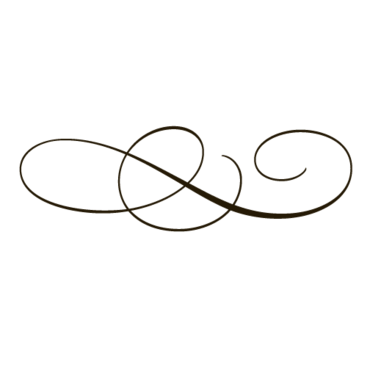
Footnotes:
- I'd like to redraw that map someday. To me, math and physics are two different ways of seeing the same thing, rather than separate fields which only occasionally intersect. And where this happens should be the center of the map, (where the historical origins circle is now).
- Finitists believe that the current way to think about infinity in mathematics is wrong.
- Riemann's humility is really fascinating for me. I often say that I got started in mathematics by reading about the history of zero (as I do above), and it's true, but the deeper truth is, it was in that first book on zero that I discovered the remarkable humility of Bernhard Riemann. This drew me in: There was something conveyed about his humility, especially in relationship with his father -- who wanted him to go into theology instead of math -- which reminded me of my relationship with my father. I wanted to know more about him because it appeared that he had been able to resolve a dilemma I still faced. That was the true origin of my journey into mathematics.
- After fundamentally changing mathematics, Grothendieck quit math when it became clear that his work was partially funded by the military. He moved to a small French village and avoided any public association with math for the rest of his life. Earlier, Wittgenstein quit philosophy and went to be an elementary school teacher in a small Austrian village after publishing one of the great works in philosophy, in which he declared that "philosophy was completed." (He was later seduced back into teaching philosophy, but told all of his best students to "do something useful with their lives instead of philosophy.")
- Yes I know the woodcut of the wolf is from an old political cartoon and the wolf's side has the word ANARCHY written on it, totally irrelevant to this narrative. Also, this footnote has no reference. It's really more of a P.S. But only people who are really paying attention to details will notice such things.